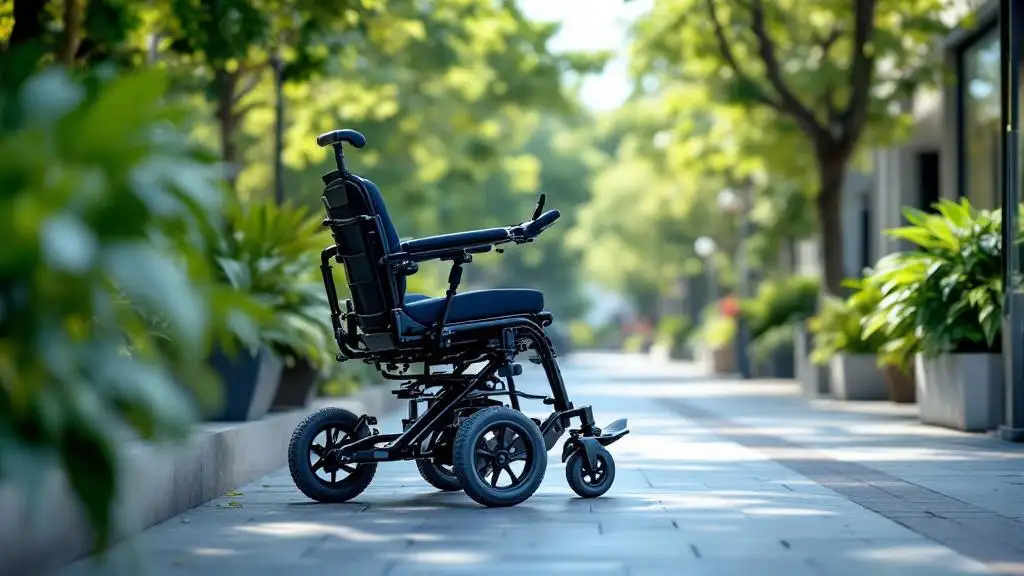
Understanding the Landscape of Crisis Support for Adults with Disabilities
Adults with disabilities, particularly those with intellectual and developmental disabilities (IDD), face unique challenges when crises occur. These crises can include behavioral emergencies, loss of essential support, homelessness, exploitation, or mental health episodes. Navigating the available support options requires awareness of community resources, understanding best practices in care, and addressing barriers that hinder access to timely assistance. This article explores strategies, resources, and policy considerations crucial for ensuring responsive and respectful crisis intervention tailored to adults with disabilities.
The Scope of Crisis Support for Adults with Disabilities

What constitutes a crisis involving adults with IDD?
A crisis for adults with intellectual and developmental disabilities (IDD) is any situation that puts their safety or well-being at immediate risk. This includes behavioral or psychiatric emergencies, such as severe mental health episodes, as well as situations where they might lose essential support systems. Additional crises involve caregiver loss, which can leave individuals without vital assistance, or concerns about self-harm, homelessness, and exploitation. Recognizing these diverse crises is crucial to providing timely help.
What types of emergencies might adults with disabilities face?
Adults with IDD may experience a variety of urgent situations requiring intervention. Common emergency types include:
- Behavioral crises, such as aggression or self-injury
- Psychiatric emergencies, like severe anxiety or psychosis
- Loss of caregivers or support networks
- Risk of homelessness or housing instability
- Exploitation or abuse
- Health crises, including medication mismanagement or physical injuries
Addressing these emergencies promptly and effectively is essential for ensuring safety and stabilization.
Why is rapid response important?
Speed is critical in crisis situations involving adults with disabilities. Quick intervention can prevent escalation and lead to better health and safety outcomes. Services like 24/7 helplines, mobile crisis response teams, and crisis centers ensure help is accessible at any time, day or night. Organizations emphasize the need for immediate assessment and tailored response plans. Rapid action not only stabilizes the individual but also helps connect them to ongoing supports, fostering recovery and safety.
What resources and supports are available for adults with disabilities in crisis?
Support systems include various specialized services designed to address immediate needs and stabilize individuals. These include:
| Service Type | Description | Additional Details |
|---|---|---|
| 24/7 Crisis Helplines | Call centers providing immediate mental health support | Examples include the national helpline 988, which offers crisis intervention for adults with disabilities. |
| Mobile Crisis Response Teams | Teams that assess and respond on-site during emergencies | They provide stabilization, de-escalation, and connection to further care. |
| Crisis Stabilization Centers | Temporary facilities for short-term care | These centers offer a safe environment for individuals needing intensive support. |
| Specialized Community Programs | Tailored interventions and training | Programs often focus on developmentally appropriate, trauma-informed approaches. |
| Support Guides and Visual Aids | Educational tools for safety planning | Resources help individuals understand what to do in a crisis and participate actively in safety plans. |
What barriers might adults with disabilities face in accessing crisis support services, and how can they be addressed?
Many adults with disabilities encounter hurdles in reaching effective crisis care. These challenges include:
- Physical barriers, such as inaccessible facilities and transportation issues
- Systemic biases and discrimination
- Lack of tailored assessment and intervention strategies
- Social stigma and misconceptions about their capabilities
- Rural location or homelessness, increasing isolation and difficulty accessing services
To overcome these obstacles, efforts focus on improving healthcare access, providing specialized training for responders on disability needs, expanding community supports, and advocating for inclusive policies. Special attention is given to fostering interagency collaboration to create equitable, respectful, and timely emergency response systems.
This comprehensive approach ensures that adults with disabilities receive the support they need during crises, promoting safety, dignity, and recovery.
Supporting Caregivers in Crisis Situations

How can caregivers support adults with disabilities during emergencies and mental health crises?
Caregivers play a vital role in preparing for and responding to emergencies involving adults with disabilities. Developing a personalized crisis plan tailored to the individual’s specific needs, communication style, and safety measures is crucial. This plan should include details such as medication management, preferred communication methods, and emergency contacts.
Education is also essential. Caregivers should learn to recognize signs of mental health deterioration or agitation and employ de-escalation techniques to prevent escalation. Creating a calm environment helps maintain stability during stressful situations.
Having immediate access to mental health resources, crisis helplines like 988, and supportive toolkits such as 'What To Do When I Don’t Feel Okay: Big Ideas' ensures quick response and reassurance. Ensuring continuity of necessary healthcare supplies and medications prevents further crisis.
Training programs offered by organizations like Seven Counties Services or community-based webinars improve caregiver preparedness. Connecting with local support groups offers emotional support and practical advice. Overall, respectful engagement that recognizes the adult's autonomy while prioritizing safety fosters trust and effective crisis management.
What are best practices and models of care for crisis intervention involving adults with disabilities?
Effective crisis care models emphasize a person-centered, trauma-informed approach that promotes dignity and autonomy. Integrating multiple disciplines—including healthcare providers, social workers, law enforcement, and community organizations—ensures comprehensive support.
Innovative models like the START (Systematic Therapeutic Approach to Response for Trauma) and community-based programs such as CAHOOTS focus on reducing reliance on law enforcement, providing safer and more tailored responses to crises. Staff training in autism-specific behaviors, de-escalation, and understanding legal rights significantly enhances intervention quality.
Prevention strategies, early identification, and community integration efforts are fundamental in reducing the need for hospitalization, supporting long-term recovery, and promoting stability. These practices are supported by research on crisis response systems that include mobile crisis teams, crisis residential services, and community supports, all aiming to deliver compassionate, effective care.
Resources for caregiver education and support
Caregivers seeking support can access a variety of resources. Many organizations offer webinars and online training modules on crisis response, behavioral support, and self-care.
Support groups, both online and local, provide peer connection and shared experiences, bolstering emotional resilience.
Emergency planning tools and educational materials empower caregivers to act confidently during crises. Connecting with local crisis services ensures that caregivers and adults with disabilities receive timely, appropriate assistance.
By leveraging these strategies and resources, caregivers can better support adults with disabilities in navigating emergencies, ultimately fostering safer and more supportive environments.
Models of Care and Best Practices

What are best practices and models of care for crisis intervention involving adults with disabilities?
Effective crisis intervention for adults with disabilities relies on approaches that center on the individual's needs, dignity, and safety. Person-centered care emphasizes tailoring responses to each person's unique situation, preferences, and needs, ensuring they are active participants in their support plans.
Trauma-informed care is also fundamental, recognizing the impact of past trauma and avoiding re-traumatization during interventions. This approach promotes safety, trust, and empowerment, helping individuals feel respected and supported.
Community response models such as the START program and initiatives like CAHOOTS exemplify alternatives to police-based responses. These programs deploy multidisciplinary teams trained specifically in working with individuals with disabilities, autism, or behavioral health challenges, often including mental health professionals and peer specialists.
Training for responders is crucial. Education on autism-specific communication, crisis de-escalation techniques, and understanding legal frameworks like the Mental Capacity Act ensures respectful and effective interventions. Maintaining ongoing prevention strategies, comprehensive discharge planning, and facilitating community reintegration are essential for sustainable outcomes.
These models aim to reduce unnecessary hospitalization, promote long-term stability, and foster safe, community-based support systems that respect individual rights.
What policies, assessment tools, and eligibility criteria are used to determine access to crisis support services for adults with disabilities?
Access to crisis support services typically begins with standardized, person-centered assessments carried out by trained professionals, often involving the individual and their support network. Tools such as the National Juvenile Court Assessment Tool (NJCAT) or specific behavioral and medical evaluations help determine the level of support needed, based on risk factors and functional capacity.
These assessments consider behavioral health, medical conditions, and support needs, ensuring eligibility is based on individual circumstances rather than solely diagnosis. Policies emphasize continuous reassessment to adapt services as needs evolve.
Funding and service provision are often tied to documented behavioral challenges, potential for harm, and the individual's support network. Coordination among various service agencies ensures fair and effective access, with eligibility criteria reflecting the person's support needs and safety risks.
By applying comprehensive assessment tools and clear policies, systems can allocate resources efficiently and fairly, ensuring that adults with disabilities receive appropriate crisis intervention tailored to their specific situations.
Legal, Policy, and System-Level Considerations

What policies, assessment tools, and eligibility criteria are used to determine access to crisis support services for adults with disabilities?
Access to crisis support services is governed by policies that emphasize fair, person-centered assessments performed by qualified professionals. These assessments often employ standardized tools such as the Next Generation Clinical Assessment Tool (NJCAT) and various behavioral checklists to systematically evaluate an individual’s support needs, potential risks, and functional limitations.
Eligibility is typically determined through comprehensive diagnostic and support need evaluations. Criteria focus on identifying risk indicators like threat of hospitalization, danger to oneself or others, or other safety concerns. Regulations demand that these assessments be ongoing and adaptable to an individual's evolving circumstances, always prioritizing individual preferences.
An essential aspect of access involves interagency collaboration, which ensures coordinated and seamless care delivery. Funding and eligibility are contingent upon documented needs, but systemic barriers like resource shortages, bureaucratic delays, and resource inequality can hinder timely access.
To address these challenges, policy reforms are necessary. Enhancing provider training, promoting equity-focused practices, and developing integrated, community-based service systems can help bridge gaps. Such reforms aim to create an environment where crisis supports are accessible, responsive, and tailored to each individual’s unique situation.
What barriers might adults with disabilities face in accessing crisis support services, and how can they be addressed?
Adults with disabilities often encounter numerous barriers inhibiting access to crisis services. Physical inaccessibility of facilities and transportation hurdles are common, compounded by long wait times and provider biases or misconceptions about disabilities.
Additionally, bureaucratic procedures can be complex and difficult to navigate, especially for those with communication challenges or limited systemic resources. Societal issues, including stigma and discrimination, further restrict access and can cause social isolation.
These barriers are especially pronounced in rural or underserved areas where community supports are limited.
Addressing these issues requires targeted policy reforms that prioritize accessibility standards—such as ensuring facilities meet ADA requirements—and expand mobile crisis teams and outreach services. Increasing community capacity through training responders in cultural competence and disability awareness is crucial.
Efforts should focus on reducing disparities by streamlining eligibility procedures, providing equitable funding, and fostering strong interagency partnerships. Such collaborations can facilitate holistic, community-based responses, ensuring that adults with disabilities receive prompt, respectful, and effective crisis support.
Community Resources and Policy Frameworks
 What policies, assessment tools, and eligibility criteria are used to determine access to crisis support services for adults with disabilities?
What policies, assessment tools, and eligibility criteria are used to determine access to crisis support services for adults with disabilities?
Policies for crisis support typically rely on standardized, person-centered assessment tools to determine eligibility. These include protocols mandated at both state and federal levels, utilizing tools such as the NIDILRR-approved NJCAT (National Core Indicators for Disability and Independent Living), behavioral assessments, and individualized support plans. Eligibility generally depends on an individual's functional limitations, behavioral challenges, or medical needs that pose a risk of harm or crisis.
Programs like Medicaid waivers—such as the Texas Home Living (TxHmL) waiver—and Social Security Disability Insurance (SSDI) or Supplemental Security Income (SSI) support access by emphasizing ongoing support and holistic, person-centered planning. These programs assess needs based on criteria like support requirements and risk factors alone, often requiring detailed assessments and documentation.
However, systemic barriers like limited resources, administrative delays, and rigid eligibility criteria can hinder timely access to these vital supports. To address this, interagency collaboration and advocacy work focus on reform efforts aimed at streamlining assessments and expanding resource availability. Building resilient, inclusive community systems involves shared efforts across government, healthcare, and community organizations to promote equitable access for all adults with disabilities.
What resources and supports are available for adults with disabilities in crisis?
A wide array of resources is available to support adults facing crises, encompassing federal, state, and community-level programs. These include Medicaid waivers, crisis helplines such as 988 and dedicated crisis lines operated by agencies like Harris Center and Project LETS, and mobile crisis response teams that provide on-site stabilization.
Specialized programs like REACH in Virginia support immediate stabilization with 24/7 response services and short-term crisis facilities. Community-based supports also extend to residential services, including Intermediate Care Facilities (ICFs) and outpatient behavioral health services. Financial support is accessible through hubs like NDI’s Financial Resilience Center, which offers resources on managing employment, income, and credit during crises.
Additional legal and advocacy support can be accessed through organizations such as NAMI, Illinois supports, and local disability advocacy groups. These resources emphasize respectful, personalized intervention with the goal of supporting independence, safety, and community integration for adults with disabilities facing emergencies and crises.
Building a More Inclusive Crisis Response System
Addressing the complex and essential need for crisis support for adults with disabilities requires a multifaceted approach. Strengthening community-based resources, ensuring equitable access through policy reform, and promoting best practices in trauma-informed, person-centered care are fundamental. Collaboration among healthcare providers, emergency responders, policymakers, and families can foster a responsive, respectful, and inclusive system. Empowering adults with disabilities and their support networks through education, accessible services, and dedicated resources is vital for fostering safety, dignity, and long-term recovery. This ongoing commitment to improvement will help create a resilient system capable of meeting diverse needs during life's most challenging moments.
References
- Navigating Crisis Situations: Supporting Individuals with Intellectual ...
- Crisis Prevention & Response | ACL Administration for Community ...
- Navigating the Unknown with the Help of Adults with Disabilities
- Financial Resources for People with Disabilities
- Mental Health, Drug and Alcohol: Support for People with Disabilities
- People with Disabilities | National Alliance on Mental Illness (NAMI)
- Navigate Life Texas: Resources & Services for Families & Parents of ...
- Resources - Project LETS
- Intellectual and Developmental Disability Services - The Harris Center
- Community Crisis Support/Crisis Assistance | Idaho Department of ...












